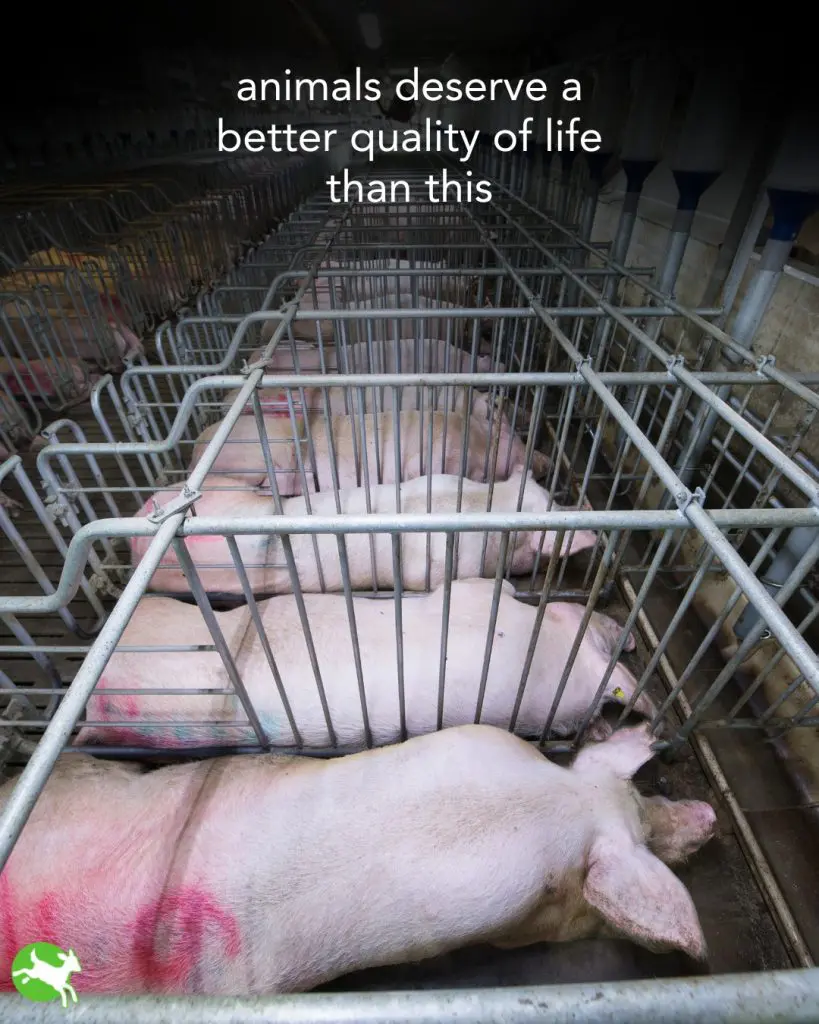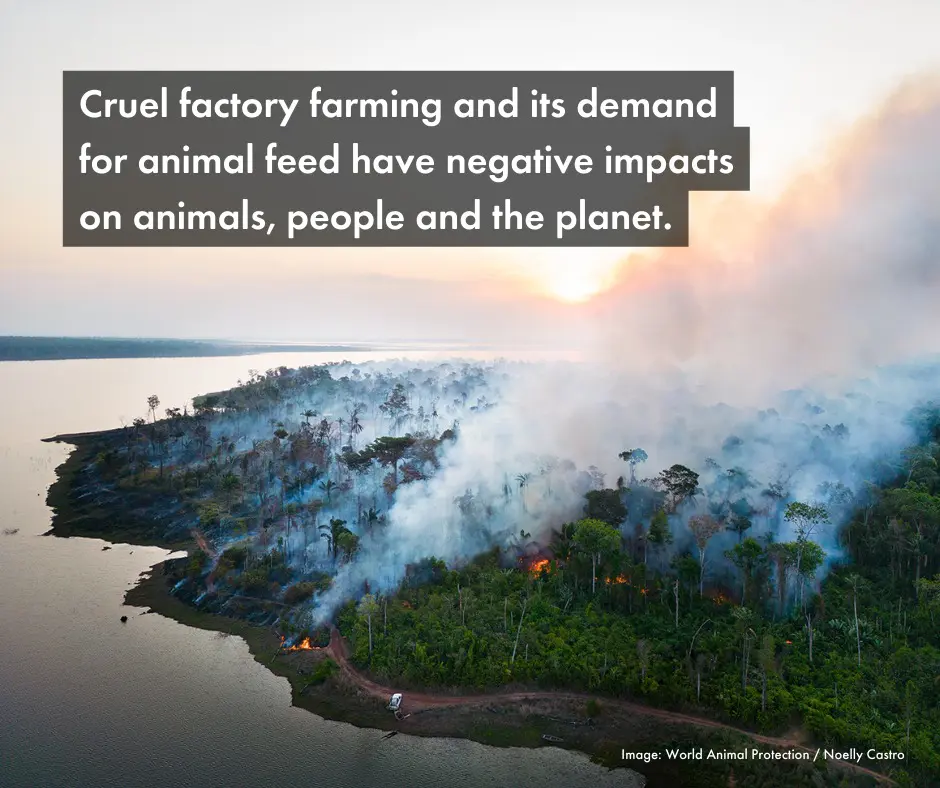Factory farming, a dominant force in global food production, conceals a host of ethical concerns that demand attention. Beneath the surface of affordable meat, eggs, and dairy lies a system fraught with animal cruelty, environmental degradation, and risks to human health. From cramped living conditions for livestock to pollution-driven climate impacts and the rise of antibiotic-resistant bacteria, its repercussions ripple across society. This article examines these pressing issues while highlighting sustainable farming practices that champion animal welfare, ecological harmony, and healthier choices—inviting reflection on how we can cultivate a more responsible approach to feeding the world
Step into any grocery store, and you’ll find shelves lined with meat, eggs, and dairy products. What you may not see, however, are the ethical implications that lie behind these seemingly innocuous food items. In today’s modern society, factory farming has become a hot topic of discussion, raising important ethical questions surrounding animal welfare, environmental impact, and human health. This curated post aims to delve into the multifaceted ethical implications of factory farming through the lens of animal cruelty, environmental sustainability, and the impacts on human well-being.
Animal Cruelty in Factory Farming
Factory farms, also known as concentrated animal feeding operations (CAFOs), are industrial-scale facilities that aim to maximize productivity and profitability. Unfortunately, this often comes at the expense of animal welfare. In these farms, animals are subjected to cramped and confined living conditions, leading to severe physical and psychological distress.
Animals such as cows, pigs, and chickens are often packed into small, unsanitary spaces where they are unable to engage in natural behaviors or exhibit social interactions. The ethical implications of this confinement are far-reaching, as it goes against the natural inclinations and instincts of these animals. This leads to heightened stress levels, increased susceptibility to diseases, and decreased overall well-being.
Furthermore, factory farms frequently rely on the use of antibiotics, growth hormones, and other questionable health practices to promote rapid growth and prevent diseases in such overcrowded environments. This practice raises concerns about the potential health risks posed not only to the animals themselves but also to human consumers.

Environmental Sustainability and Factory Farming
The environmental impact of factory farming cannot be overstated. These operations contribute significantly to greenhouse gas emissions, a leading cause of climate change. In fact, some estimates suggest that animal agriculture is responsible for more greenhouse gas emissions than the entire transportation sector combined.
Factory farms also generate vast amounts of waste, which is often improperly managed. The disposal of animal feces, urine, and other byproducts leads to water pollution, including the contamination of rivers and groundwater sources. Moreover, the excessive use of fertilizers and pesticides in the cultivation of animal feed further exacerbates the environmental harm caused by factory farming.
Another concerning consequence of factory farming is deforestation. To meet the demand for feed crops, vast areas of forests are cleared, leading to the destruction of natural habitats and the loss of biodiversity. This loss of natural ecosystems perpetuates a cycle of environmental degradation that threatens the delicate balance between humans, animals, and the planet itself.

The Health Implications of Factory Farming
Aside from ethical concerns, factory farming poses potential risks to human health. The use of antibiotics in animal feed, aimed at preventing diseases in crowded conditions, is a commonly employed practice in factory farming. However, this extensive use of antibiotics contributes to the rise of antibiotic-resistant bacteria, posing a significant threat to human health. Treating infections caused by antibiotic-resistant bacteria becomes increasingly challenging, endangering lives and reducing the effectiveness of these crucial drugs.
Furthermore, factory farming operations have been associated with foodborne illnesses. The unsanitary conditions in which animals are raised increase the risk of contamination of meat and animal products with pathogens such as Salmonella, E. coli, and Campylobacter. Consuming contaminated food can lead to severe illness, sometimes with long-lasting effects on individuals’ physical well-being.
Moreover, the excessive use of pesticides and other chemicals in factory farming has been linked to various health concerns. These chemicals can accumulate in animal tissues and find their way into the human food chain, potentially affecting human physiology and posing additional health risks.
Alternatives and the Shift Towards Ethical Farming
While factory farming may dominate the food industry, there are alternative farming practices that promote ethical considerations and environmental sustainability. Organic farming, for instance, focuses on utilizing natural fertilizers, integrated pest management techniques, and providing livestock with access to the outdoors and proper living conditions.
Regenerative agriculture and permaculture are additional practices that emphasize the restoration of soil health, biodiversity, and ecosystems. These approaches aim to work in harmony with nature, promoting sustainable farming practices and reducing environmental impact.
Beyond these alternative practices, consumers also play a crucial role in driving change in the industry. By choosing to support local and small-scale farmers who prioritize animal welfare and sustainable practices, individuals can send a powerful message to the larger food production system. Additionally, supporting legislation and organizations that advocate for stricter animal welfare standards and promote sustainable farming practices can also help accelerate the shift towards a more ethical and sustainable farming system for the future.

Conclusion
Factory farming’s ethical implications extend far beyond the boundaries of animal cruelty. The industry’s impact on the environment and human health cannot be ignored. By shining a light on the realities of factory farming, it becomes evident that change is necessary. Reflecting on our consumption habits and making informed choices can lead to a collective effort to support ethical alternatives and demand a more sustainable food system. It’s time to take a stand for the well-being of animals, the health of our planet, and our own future.



